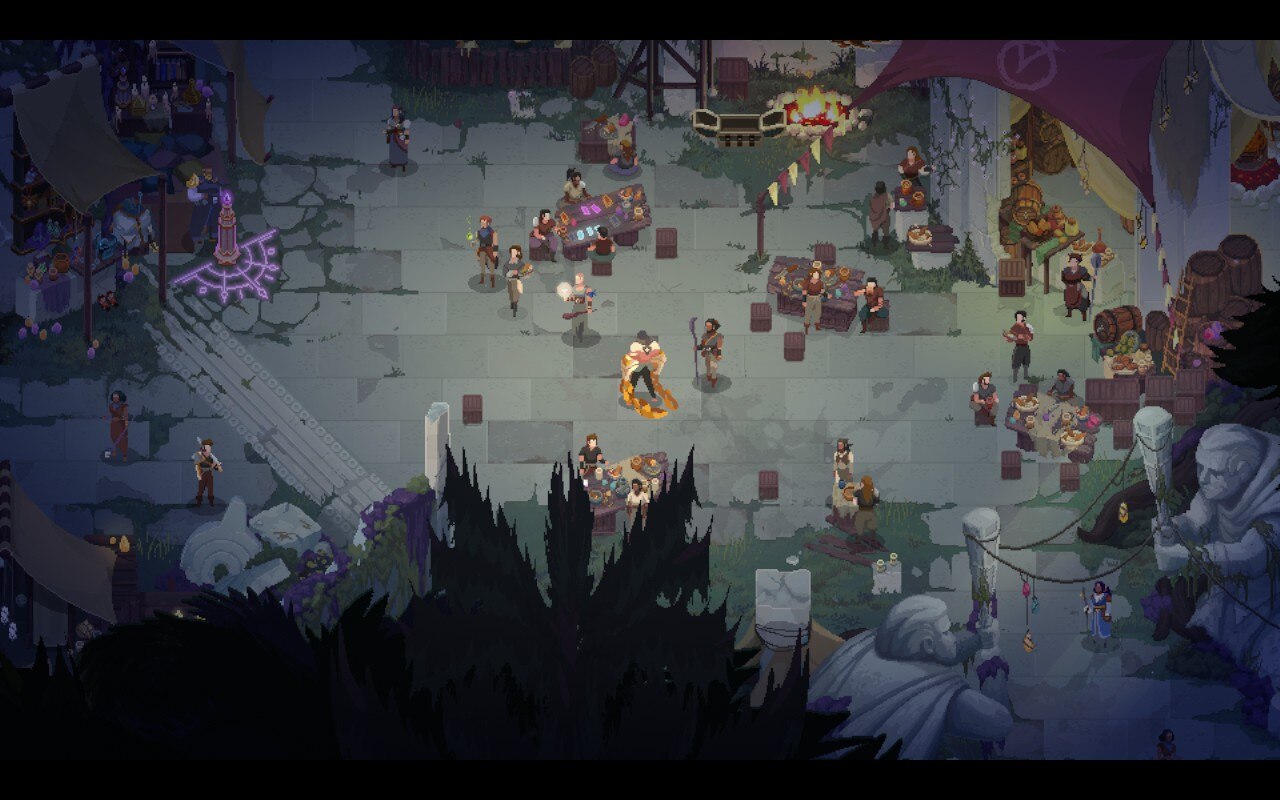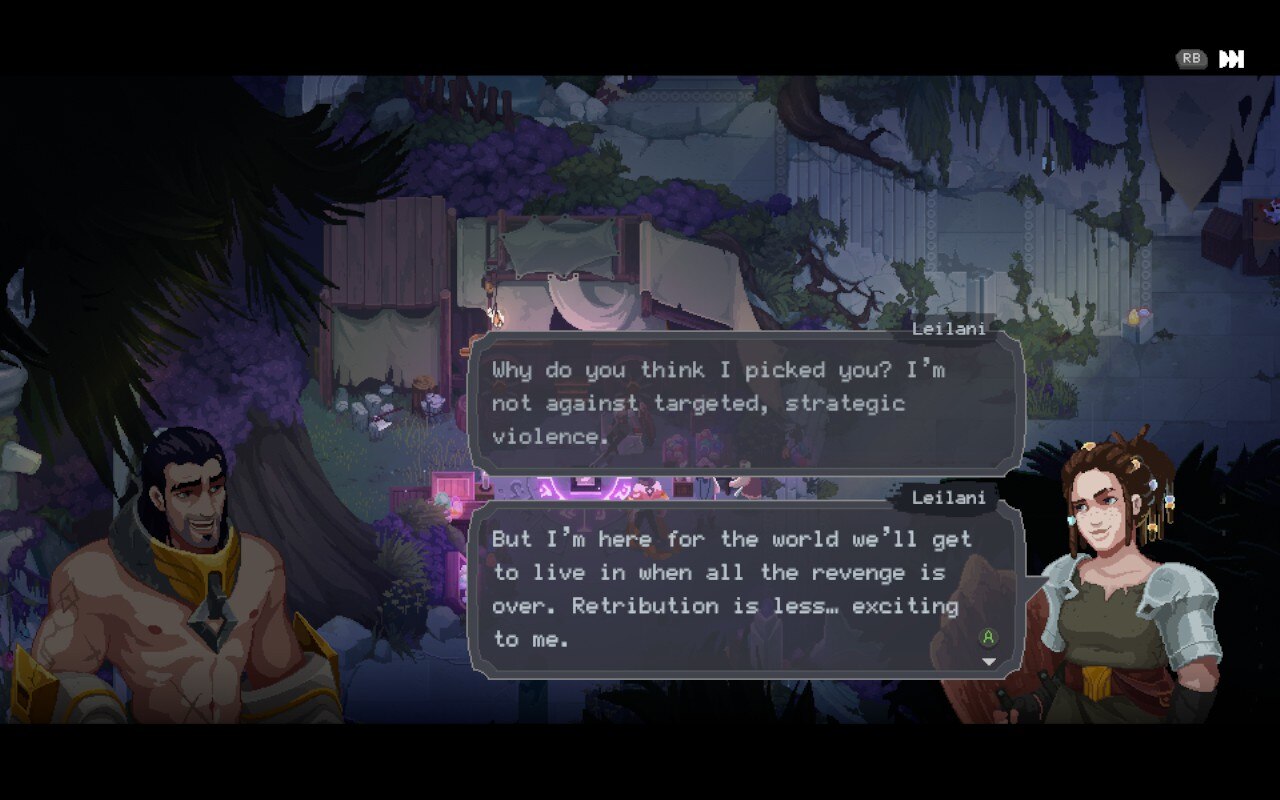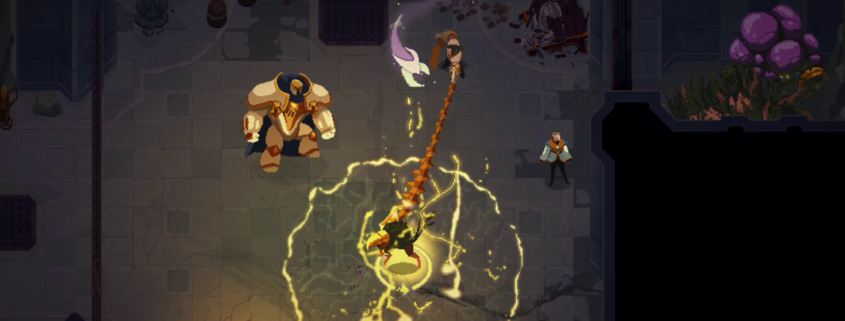The Mageseeker: A League of Legends Story review
NEED TO KNOW
What is it? A League of Legends spin-off that shares a conceit with Limp Bizkit’s “Break Stuff”.
Release date April 18, 2023
Expect to pay $30/£24
Developer Digital Sun
Publisher Riot Forge
Reviewed on Steam Deck
Steam Deck Verified
Link Official site (opens in new tab)
What creates the conditions for revolution? Usually, an event has occurred or policy has been enacted that goes beyond what’s bearable and into a fractured territory where compromise is no longer possible. It’s at this point society can no longer be meaningfully reformed through voting or legislation; the new world will only emerge from the ashes of the old.
In Runeterra, that is. Definitely just in Runeterra, nowhere else.
The Mageseeker: A League of Legends Story, developed by Digital Sun (creators of Moonlighter) and published by Riot Forge, Riot Games’ worldbuilding-centric publishing wing, is the origin story of Sylas the Unshackled, a League of Legends melee burst/skirmisher champion added in early 2019. Depending on who in the player base you ask, Sylas is either an especially edgy anti-hero or a straight-up villain, a revolutionary figure or a murderer—there doesn’t really seem to be any in-between. The Mageseeker aims to set the record straight.
We first meet Sylas after a short synopsis of his origins in the Kingdom of Demacia. He was conscripted into the anti-magic secret police, the titular Mageseekers, as a child because he had the ability to visually identify other people’s magical auras—in essence, becoming a human drug-sniffing dog, but for secret mages. When one of his latent magic powers flared up on a mission and he accidentally killed some villagers, he was locked in a high-security dungeon for 15 years, with nothing to keep him company but some questionable books and a mind and body bent on revenge.
Cut to present day; there’s a full-on revolt happening in Demacia against the Mageseekers. A freshly escaped Sylas is directed to a secluded rebel camp in a nearby forest, and from there we’re left with a choice: do we seek the revenge Sylas so badly wants, or do we help the rebels build up revolutionary power?
(opens in new tab)
The action that props this political drama up is fairly robust. Sylas starts out by being able to punch people or whip them with his chain gauntlets, and those same gauntlets allow him to close the distance on enemies, steal their magic, and even toss himself across the battlefield for safety. While the basic attacks are, well, basic, you can unlock a few devastating elemental combos by recruiting elite mages and choosing up to two of them to fight each mission. You also have a whole host of elemental spells you can choose from, which you can put into up to four unlockable spell slots. These spells help in a pinch, especially when you’re trying to keep your distance from enemies with a long reach or big area-of-effect attacks.
The elite mages you recruit can themselves recruit cadres of up to 15 rogue mages. This has the material effect of noticeably bolstering your rebel camp’s size and power Sylas’s moveset up. This is especially important as enemies, especially bosses, can be extra brutal if you’re not paying attention. There were several moments while fighting a boss where I looked away from the screen for one second and Sylas was already knocked out. The good news is, the checkpointing is fair—I was never more than a room or hallway away from where I fainted. The end result is a challenging action experience that doesn’t wear out its welcome.
Comradery is magic
(opens in new tab)
Different people have different reasons for participating in revolutions, and the game explores a lot of possible motivations.
I’ve never really gotten into League of Legends or its various spin-offs, but refreshingly I didn’t need a doctorate in Runeterra lore to understand The Mageseeker’s story—and I was impressed by how frank it is with its surprisingly radical narrative. There’s no waffling here: the Demacian state is evil for imprisoning and killing mages, and it—or at the very least the organization doing the wide majority of the jailing and killing—needs to be dismantled. Sylas is out for revenge, and he’s initially pretty one-dimensional in this regard, but that single-mindedness is offset by everyone else in the cast. Different people have different reasons for participating in revolutions, and the game explores a lot of possible motivations.
You’ve got Leilani, the rebel leader, who dreams of a post-rev world where mages no longer have to live in fear. Then there’s Gideon, a former Mageseeker who defected after his mage husband was captured and imprisoned, now in search of a way to right the wrongs of his former employers. Yops, a yordle warrior, fights to make sure the Mageseekers can’t continue their abhorrent experiments on humans and nonhumans alike. We even get the perspective of pacifist resistance from Sylas’s former friend, Lux Crownguard, as she defends a mage haven in Terbisia. 
(opens in new tab)
The revolution is necessary; the Mageseekers are evil; the Demacian monarchy is corrupt.
These characters don’t merely pop up to give Sylas pats on the back for a brutal job well done; they disagree with him on motives and tactics at various points throughout the roughly-12-hour-long story mode. While he tries to stick to his initially paper-thin convictions based in bloodlust, there are moments of reflection where he even seems troubled by his own single-mindedness. Eventually, he’s forced to confront the fact that you can’t fight a revolution on revenge alone; people need something else to hang their hat on.
But still, if you’re looking for some kind of centrist “pox on both houses” which confirms Sylas’s position as a villain or something, you won’t get it. The revolution is necessary; the Mageseekers are evil; the Demacian monarchy is corrupt. These aren’t negotiable subject positions, we see it clearly in the actions of the people in power. And Sylas, far from being evil himself, never directs his rage toward random citizens. He doesn’t terrorize random villages or slaughter indiscriminately. To butcher a common phrase, he only afflicts the comfortable and comforts the afflicted.
While The Mageseeker can feel a little bit didactic at times, its willingness to stake a clear ideological claim when so many of its contemporaries shrink like violets at the mention of politics is refreshing. It backs this up with compelling gameplay, an excellent soundtrack and vibrant pixel graphics. If you like media that combines high-octane action and bombastic political intrigue, The Mageseeker is well worth the time.




